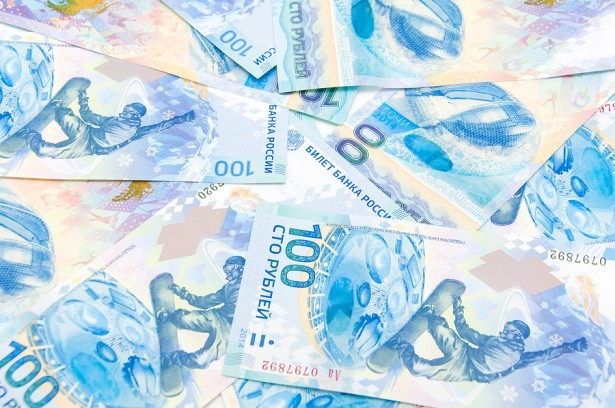It’s safe to objectively say that the Russian Federation is going through a currency crisis.
As the ruble continues to decline – it tumbled to 73 against the dollar during the Tuesday trading session – the Bank of Russia announced that it has raised its short-term interest rate from 10.5 percent to an enormous 17 percent. This is the biggest move from the central bank since 1998, a time when the government defaulted on its sovereign debt.
Since the beginning of the year, Russia’s ruble has lost more than half of its value amid strict sanctions being applied on the country due to the Ukraine conflict that has paralyzed the nation for the past year. Also, the immense decline in oil prices has also greatly contributed to the decline in the ruble and government coffers.
Elvia Nabiullina, chairwoman of the central bank, defended her decision by arguing that the rate hike was meant to prompt Russians to establish ruble denominated deposits. At the same time, however, Nabiullina noted that the value of the ruble will not be immediately impacted by the rate and it could take a while before the currency rises in value.

“We must learn to live in a new reality, to focus more on our own resources to finance projects and give import substitution a chance,” the bank chief said in a televised address Tuesday.
With the Russian government pushing its debt level to more than a quarter of a trillion dollars, there is now a concern that President Vladimir Putin will encourage the central bank to print money to help cover the national debt. The central bank has already issued new rubles to help keep Rosneft, the national oil company, afloat, reports the New York Times.
Prime Minister Dmitry Medvedev said that the government will hold meetings throughout the week to confirm and potentially announce new currency restrictions, monetary actions and government interventions in order to avoid a greater devaluation of the ruble.
However, most concur that if the massive rate hike wouldn’t help matters then further government intrusions into the market and greater capital controls won’t aid them either.



